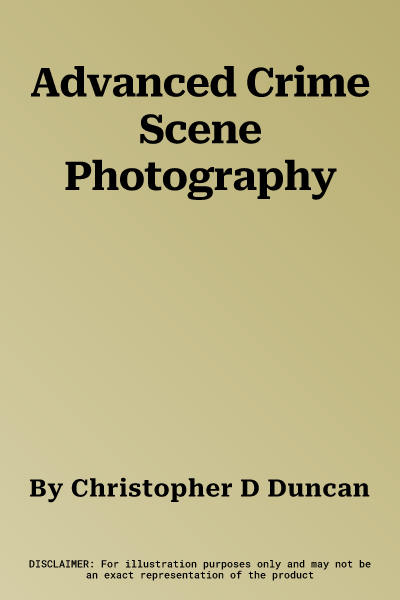The ability to thoroughly and properly document a crime scene through
photography is a must for crime scene investigators. Regardless of the
time of day, weather conditions, or confines in which a piece of
evidence is concealed, photographs must be true and accurate. Capturing
all the pertinent information and evidence for use during an
investigation and testimony is critically important. Evidence is
commonly found in less-than-photographically-friendly environments.
Possessing the knowledge and skills necessary to properly photograph
those difficult-to-image subjects is vitally important.
Advanced Crime Scene Photography explains how to identify crime scene
challenges, design plans to capture images correctly, and execute those
plans successfully. Seamlessly integrating photography principles with
corresponding applications in crime scene photography--moving
progressively from basic to more advanced concepts--this book
demonstrates how to record photographs in low-light conditions,
including the use of flash and painting with light techniques. The book
also addresses a variety of topics including impression evidence, fire
scenes, laser trajectories, macro-photography, and ultraviolet and
infrared photography.
Offering tips on everything from creating compelling photos on a limited
budget to the photography of Luminol reactions, this Second Edition:
- Features a new chapter on photographing fire scenes, presenting
solutions to problems commonly faced by fire investigators
- Includes the addition of review questions and photography assignments
at the end of each chapter
- Contains more than 250 full-color images and photographs
Anyone can take a photograph in perfect lighting, with the subject
sitting out in the open and already positioned for the best composition.
Advanced Crime Scene Photography, Second Edition provides crime
scene investigators with a comprehensive, step-by-step resource on crime
scene photography under the most difficult and adverse conditions.

